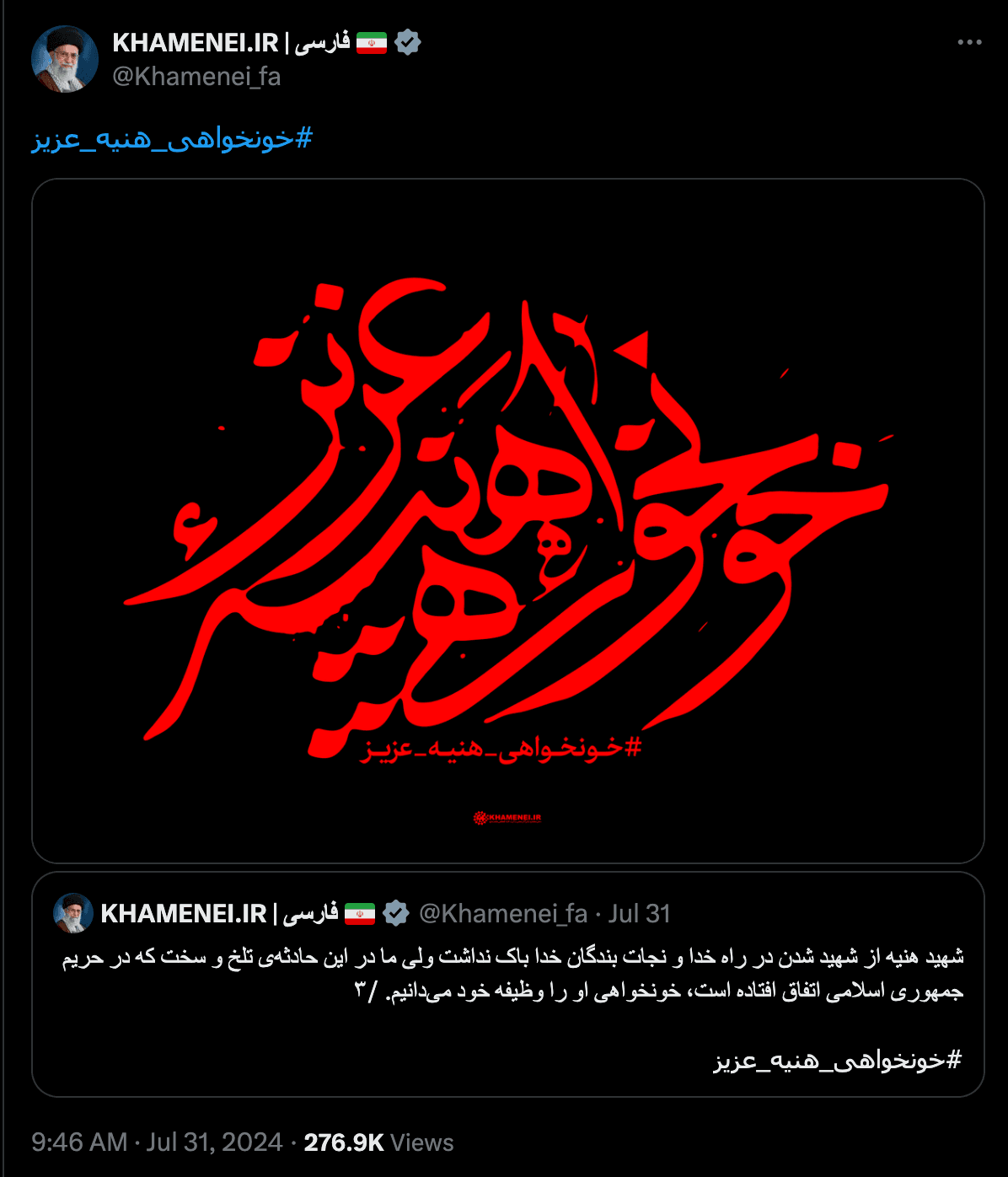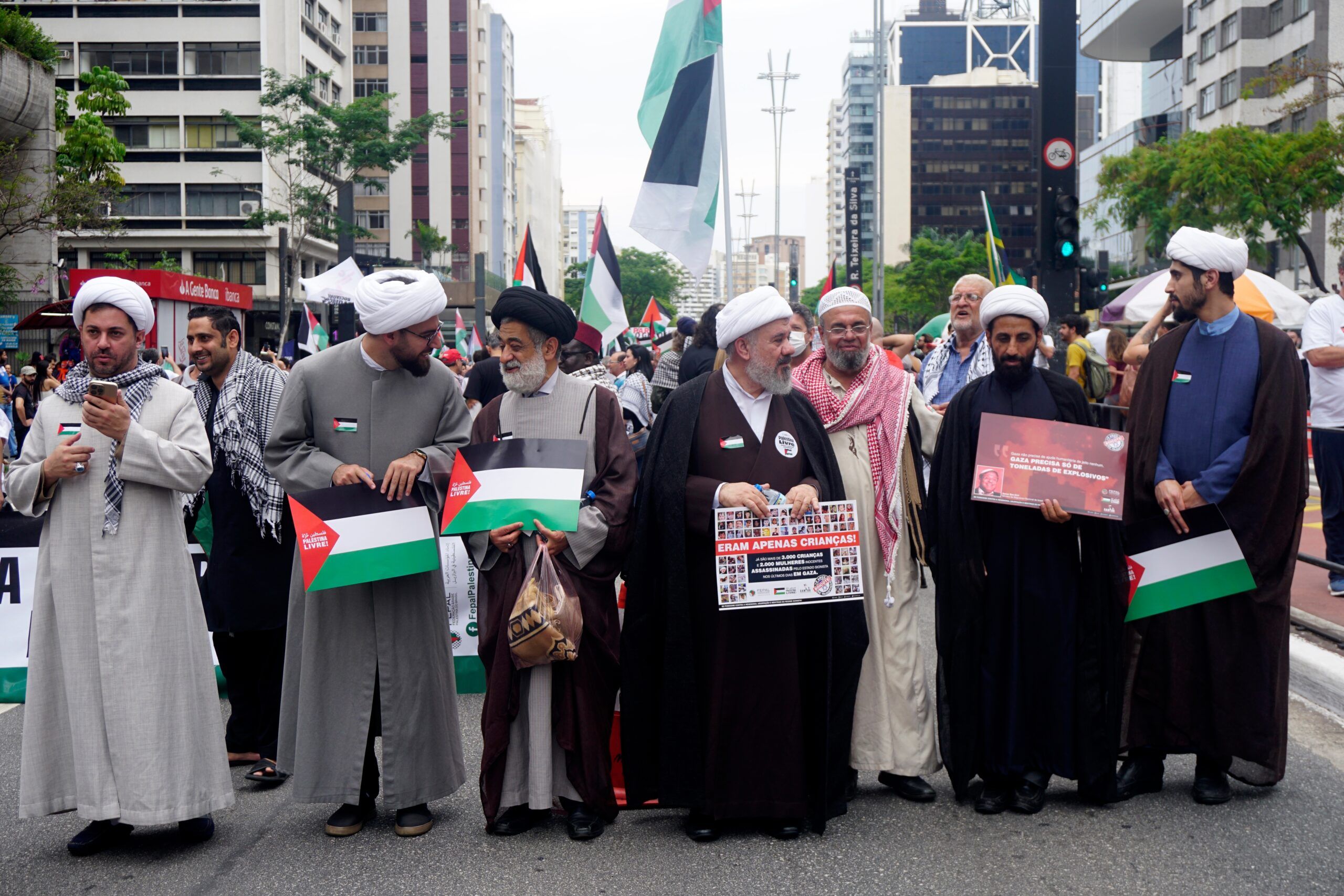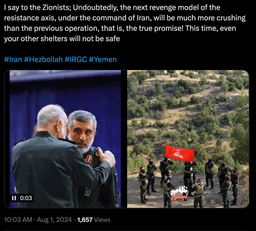Virtual Battleground: The Digital Storm Following Ismail Haniyeh’s Death

Ismail Haniyeh, the prominent leader of Hamas, was assassinated in Tehran on July 31, 2024, via a bombing operation. The explosive device, which had been clandestinely installed in his guesthouse weeks before the incident, was remotely detonated when Haniyeh was inside, according to New York Times. This high-profile assassination has been linked to Israel, although Israeli authorities have neither confirmed nor denied their involvement. The breach in security at the guesthouse, protected by Iran’s Islamic Revolutionary Guard Corps, underscored a significant lapse in their operational security protocols. This incident quickly became a prominent topic on social media, sparking discussions about Iran’s inability to protect its allies.
Haniyeh was in Tehran to attend the inauguration of Iran’s new president and participated in several high-profile meetings, including with Supreme Leader Ayatollah Ali Khamenei. His death elicited widespread reactions from leaders and non-state actors, further contributing to the volatile situation in the Middle East.
In this social media briefing, the WNM team examines the various topics and narratives that emerged following the death of Ismail Haniyeh to analyze and assess the threats and tensions in the region and the narratives surrounding it.
Ayatollah Khamenei’s X account is consistently outspoken on issues involving Iran. With minimal moderation and restrictions, it serves as one of the most valuable sources of information on matters related to Iran and the public opinion directed at its supreme leader.
In his tweet from July 31st Ayatollah expressed his discontent with the situation that happened on the Iranian soil and promised to take revenge. This statement generated thousands likes and replies discovering the mass opinions on the issues and his statement.
The tweet attracted attention from both supporters of the Iranian regime and advocates for Israel. Both sides expressed violent and hostile emotions towards each other. Some users called for revenge, detailing how it should be carried out, while others attacked the Iranian leader, implying he would meet a similar fate.
Replies directly called for open confrontation with Israel in response to the death of Ismail Haniyeh.
Replies on X called for revenge and resonated strongly within Muslim communities, amplifying calls for retaliation and intensifying the discourse surrounding the incident.
On the other side, comments critical of the Iranian leader were equally vocal. They called for open confrontation, labeled Khamenei a supporter of terrorism, and implied that he would be the next target.
A reply mentioned X’s owner Elon Musk and the X team, insisting that Khamenei’s statement violated the platform’s policies as it constituted a violent threat.
Usually, replies and tweets on the topic of the Israel-Hamas conflict primarily consist of memes and mocking commentaries. However, this event marks a shift towards more violent and threatening rhetoric. Users are now more prompt to take sides and express their opinions forcefully:
Comments in Urdu and Farsi to the tweets of Khamanei also had supportive dynamic:
The tweet in Urdu translates to: “Do not just fire rockets, rather avenge blood with blood.”
The tweet in Urdu translates to: “If Iran does not take revenge, then for my sake, this country is not worth living in, and I will hate Iran until my last breath. I used to be proud of Iran, but now. However, there have been so many General Qassem Soleimani and now martyrdom of Abu Ismail. Now Iran has no right to remain alive.”
The tweet translates to: “Before taking revenge, permission must be taken from America.”
Account in Farsi posted this picture that would translate to “Revenge for Haniyeh”
New hashtags were generated by this occasion:
- “This time, blood must be shed for revenge, otherwise the martyr’s blood will be trampled upon. #RevengeForDearHanieh”
- “By Imam Hussein or Abu al-Fadl Abbas ????”
- “#RevengeForDearHanieh”
- “#RevengeForDearHanieh”
- “Labbayk ya Khamenei (We are at your service, O Khamenei) #LabbaykYaKhamenei”
Discussions on Twitter about this topic were significant, as the platform allows people to express their opinions directly to international and military actors and leaders. This incident highlighted the dynamics among users, as the killing of Haniyeh sparked numerous reactions. Muslim communities showed solidarity, Iranian supporters united in their desire for revenge, and supporters of Iran and Palestine found more reasons to align. Conversely, others celebrated the death of another enemy leader. Users shared a plethora of memes and satirical commentary about the power figures involved. While there weren’t particularly violent dialogues between supporters of different positions, the overall tensions and dynamics on the platform are intensifying, which could lead to more threats both online and offline.
WNM will continue to research the online dynamics and consequences of military operations in the Middle East.
More from the author

















